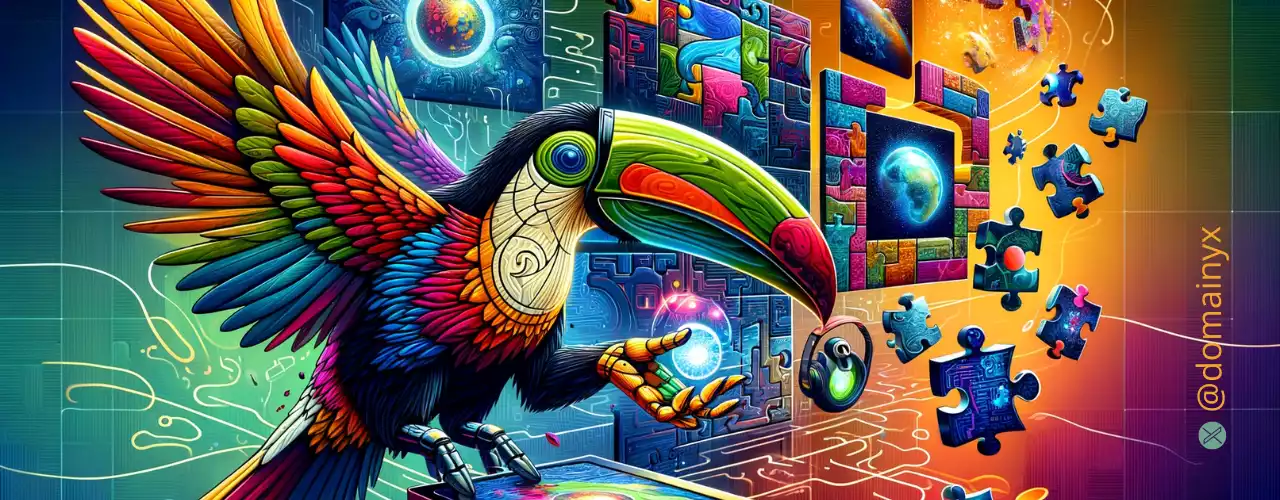Virtual Reality
Virtual Reality (VR) is a technology that creates a simulated, immersive environment, which users can interact with in a seemingly real or physical way. It's typically achieved through a VR headset or multi-projected environments, and it often includes auditory and tactile feedback for a more immersive experience.The potential of VR is enormous, as it can fundamentally change the way we interact with digital content:Gaming: VR provides an immersive gaming experience, bringing game environments to life and allowing players to interact with the game world in intuitive ways.Education and Training: VR can simulate real-world environments for educational purposes, enabling students to learn by doing. It's also used for training in various fields, such as medicine, the military, and aviation, where it can simulate scenarios that would be dangerous or expensive to replicate in real life.Real Estate and Architecture: VR can offer virtual tours of properties or architectural designs, giving clients a better sense of space and layout than traditional 2D plans.Healthcare: In medicine, VR is used for therapy, surgical planning, and training. It also holds promise for pain management and rehabilitation.Social Interaction: VR platforms enable users to interact with each other in virtual spaces, opening up new possibilities for socialization, collaboration, and remote work.Entertainment and Media: Beyond gaming, VR offers new ways to experience movies, concerts, sports, and other forms of entertainment.Retail: VR can allow customers to virtually try on clothes, explore stores, or test products, enhancing the online shopping experience.Despite its potential, there are challenges to widespread VR adoption, including the need for more comfortable and affordable hardware, the development of more high-quality VR content, and overcoming issues related to motion sickness. There are also broader societal and ethical questions to consider as VR becomes more prevalent.In summary, VR is a powerful technology with the potential to transform numerous industries and the way we interact with digital content. As technology continues to improve, we can expect VR to become an increasingly integral part of our digital lives. It's a promising field for businesses, developers, and creatives looking to shape the future of digital interaction.
HoloTile Floor: A New Era in Immersive Tech
Discover HoloTile Floor's potential in VR, AR, and XR. This groundbreaking tech redefines immersive experiences, much like the evolving domain market. As virtual realms expand, so do opportunities in domain trading. Just as HoloTile Floor opens new dimensions in tech, savvy investments in domain names can unlock lucrative ventures. Embrace this era of immersive tech and domain market prospects, where innovation leads to financial success.
Invest in Metaverse: Secure Your Digital Fortune
Step into the world of infinite opportunities - the Metaverse. As the boundary between physical and virtual realities blurs, immense potential unfolds. Investing in a Metaverse related domain, like Metaver.com.br, means not just following, but leading the digital revolution. The Internet is your realm, your dominion; now it's time to claim your digital fortune. The Metaverse is not just a trend, it's the future. Secure it, own it, live it. Begin your digital legacy today with Metaver.com.br.
Augmented Reality: How to succeed in the gaming world
Welcome to the immersive world of augmented reality (AR) games, where the boundaries between the digital and physical world blur, creating unparalleled gaming experiences. As AR technology evolves, it is revolutionizing the gaming industry, presenting vast opportunities for developers, investors, and gamers alike. Join us as we explore this dynamic market, revealing the key players, innovative advancements, and future prospects of AR gaming. Unleash your curiosity and passion as we delve into the captivating realm of AR games, examining how this technology is transforming entertainment and shaping the future of gaming. Embark on this thrilling journey, and seize the opportunity to be part of the AR gaming revolution. The future…
East Science Valley: A New Era Of Virtual Reality
Welcome to East Science Valley, China's groundbreaking Virtual Reality Mega Park, where technology, imagination, and innovation converge to deliver an unparalleled immersive experience. Spread across an expansive landscape, this state-of-the-art entertainment complex offers a plethora of mind-bending virtual reality attractions, interactive exhibits, and cutting-edge rides that cater to thrill-seekers and tech enthusiasts alike. East Science Valley is the embodiment of China's commitment to the future of virtual reality, featuring collaborations with industry-leading companies and research institutions. This trailblazing destination invites you to step into tomorrow's world and explore the limitless potential of human creativity and technological advancement. Prepare to be amazed as you embark on an unforgettable journey that transcends…






